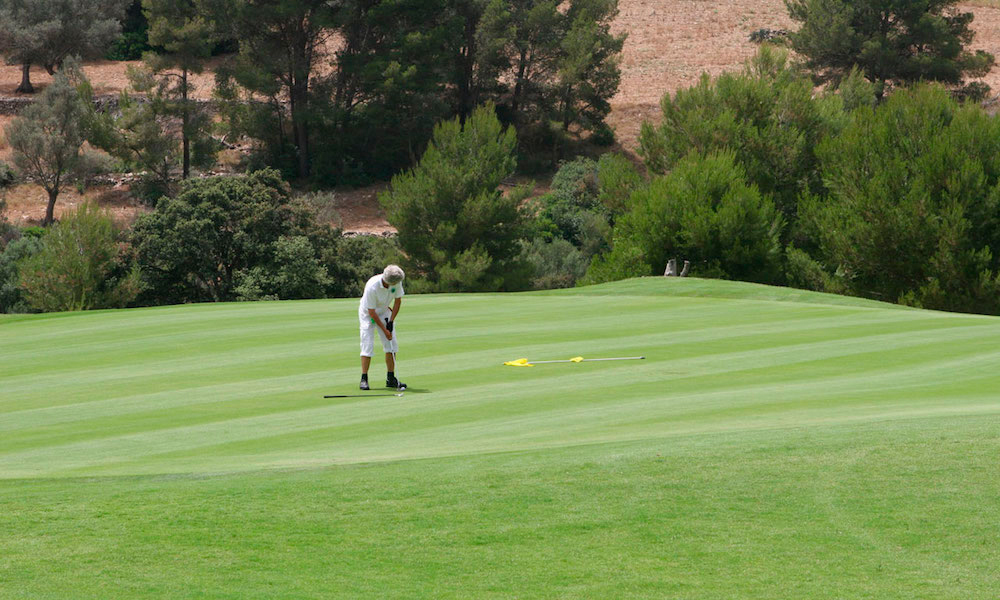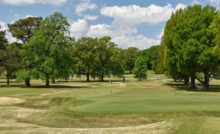Audubon recognizes Jekyll Island Golf Club’s conservation efforts


Jekyll Island Golf Club
The Jekyll Island Golf Club offers four quality courses of meticulously maintained fairways and carefully manicured greens.
But a golfer is more likely to encounter a wild fox or a wood stork if he really shanks one off the tee. For all their hard work, the club’s golf course maintenance crew does not do a thing with more than half of the 300 acres that comprise the golf complex.
And for its efforts to leave most of the land alone, the Jekyll Island Golf Club has received conservation honors from Audubon International. The Jekyll Island Golf Club’s Great Dunes and Oleander courses were recently recognized as Certified Audubon Cooperative Sanctuaries. The club’s Pine Lakes and Indian Mound courses already were certified as Audubon cooperative sanctuaries.
Related: Audubon Cooperative Sanctuary Program for Golf Courses: More Relevant than Ever
The Audubon certification recognizes golf clubs for taking into account such issues as wildlife habitat, water quality and conservation, and efforts to cut down on the use of landscaping chemicals and fertilizers.
“It just shows the hard work that our golf course staff takes every day to fulfill our mission for conservation,” said Yank Moore, the Jekyll Island Authority’s Conservation Coordinator. “They are working hard out there, trying to make it playable but also doing good things for the conservation side of it as well.”
The Jekyll Island Club oversees the island’s golf club. Moore and golf course superintendent Aaron Saunders began looking several years ago at ways to provide more natural space. Together they determined that a lot of land was being mowed and maintained unnecessarily. They found a lot of spaces that were best left alone, both for Mother Nature and for the staff. This not only cut down on time spent mowing and doing maintenance, it also significantly reduced the amount of fertilizer used.
Pines Lakes earned the Audubon certification in 2013, and Indian Mound followed in 2015.
“We’ve managed to keep nearly 160 acres untouched,” Moore said. “So that serves as wildlife habitat and corridors. We have a surprising variety of wildlife for being a golf course.”
In fact, the complex is home to some 430 species of flora and fauna. This includes everything from bobcats and great horned owls to red bay and oak trees. This species count was made official by staffers and volunteers last March and April as part of Audubon’s annual BioBlitz.
Related: Discover the Georgia Golf Trail: A Golfer’s Paradise!
Leaving these areas natural allows the golf course maintenance staff to concentrate on the grounds that are in play.
“The feedback we get from golfers is it doesn’t inhibit play at all,” Moore said. “We’ve taken the areas that are truly out of play, places where you would hit only if you really messed up, and turned them back over to nature to enhance wildlife habitat.
“It saves us from having to manage these areas. We don’t have to fertilize, we don’t have to water. Some sections have turned back into grassland, some have started to get trees and become forests again.”
Jekyll Island Golf Club is among 26 golf courses statewide to earn the Audubon recognition, and one of only three nationwide to have at least 63 holes certified as cooperative sanctuaries.
“They’re definitely committed to providing a sanctuary for wildlife on their golf course property,” Tara Donandio, director of Audubon’s sanctuary program. “We’re really proud of their effort. They’re maintaining a high degree of environmental quality.”
Recent Posts
Memphis Country Club: A Golfer’s Study in Precision and Tradition
If you have ever teed it up at Memphis Country Club, you know this isn’t…
Foley Company attains GCSAA Silver Partner Status
Foley Company, a leader in turf equipment innovation and technology, affirms its support of the…
Harrell’s continues longstanding support of the GCSAA Foundation
Harrell’s LLC, a leading distributor of customized agronomic products for turfgrass since 1941, has donated…
City of Orlando Announces New State-of-the-Art Driving Range at Dubsdread Golf Course
The City of Orlando is excited to announce the construction of a brand-new, state-of-the-art driving…
Discover Puerto Rico for Great Golf Trips and After-Round Activities, Amenities
Golfers cannot live by the game alone which is why Puerto Rico provides the perfect…
Q&A with a Multi-talented Golf Course Architect – Part 2: Making the Rounds – Installment 39
This column features recollections of the author’s 37 years as a golf writer. These installments…



